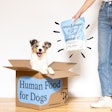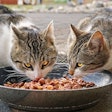The ongoing pet food advertising spat between Nestlé Purina PetCare and Blue Buffalo has reared its ugly head again. There really is no other, good way to describe it. How can this continuing dispute—not to mention the countervailing lawsuits, which have probably already racked up millions of dollars in legal fees—have any benefit for pets, pet owners or the pet food industry? Or for the two companies themselves?
Those are rhetorical questions, I think; though if anyone has any plausible answers, please do share them.
A recap of the latest developments: Purina issued a press release on May 7, essentially crowing about the fact that Blue Buffalo had admitted during a May 6 court hearing for one of the lawsuits that a “substantial” and “material” portion of its pet food contained poultry by-product meal, despite advertising claims to the contrary. This admission, Purina pointed out, came a year to the day that Purina had sued Blue Buffalo for false advertising over such claims.
(That lawsuit followed recommendations from the National Advertising Division, the investigative arm of the US advertising industry, that Blue Buffalo change its advertising claims, including direct and indirect comparisons to competitive products in its advertising and on its website. Blue Buffalo quickly countersued Purina for defamation.)
Two days after Purina’s new press release, on May 9, 2015, Blue Buffalo posted a response on its website—a rather subdued one compared to bold, almost combative statements posted last year during the initial hailstorm of lawsuits. And, those statements were signed by Bill Bishop, chairman of the company; this latest one was signed simply, “Blue Buffalo.”
Actually, Bishop seemed to start pulling back last October, when he posted a letter on the company’s site informing consumers that it may have received poultry by-product meal mislabeled as chicken meal, blaming it on a supplier, and some of that mislabeled ingredient could have possibly ended up in its products. Last week’s court hearing seems to have brought the issue full circle, with Blue Buffalo saying now that a “material amount of our dry foods manufactured with mislabeled ingredients shipped prior to May 2014 had been impacted,” making the admission based on additional disclosures from the supplier.
No doubt Purina and Blue Buffalo both believe they’re fighting for their reputations, market share and possibly their companies’ long-term viability. (Or even short-term: Blue Buffalo had reportedly been pursuing an IPO in March 2014, which it apparently backed off from once Purina sued.) But really, is either company gaining from this sordid mess?
It’s certainly difficult to see a benefit to our industry—unless this entire situation somehow, someway inspires everyone, or at least many of us, to finally confront the reality that by-products offer safe, healthy, nutritious ingredient options. (Even an observer outside of the pet food industry, Paul M. Barrett of Bloomberg Business, commented that the by-product issue is one of the “weird aspects of this entire dispute.”) Further, as pet food has to compete more and more with the human food industry for ingredients and raw materials—particularly protein sources—by-products will become ever more necessary.
So, if we were to look ahead, and If pet food companies were to step back and actually embrace by-products and figure out how to educate consumers about their benefits, then in the long run, that would help pets and their owners, too.
Perhaps I’m naïve, and that genie can’t be put back into the bottle; by-products have been repeatedly disparaged for quite some time and now dragged through the mud of lawsuits that seem to have no end in sight. Even Barrett commented that “pet owners who think of their animals more as children than domesticated beasts will pay extra for food that’s actually no better for their dogs and cats.”

















